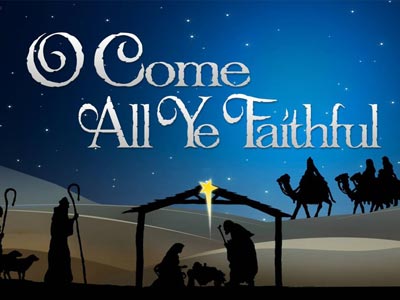-
Bits And Pieces Series
Contributed by Roshelle Brenneise on Jul 18, 2025 (message contributor)
Summary: Before continuing, it’s worth stopping to reflect. The stories of rebellion seem to be without end. There were times of judgment, but even in those moments, God remained faithful.... This contrast between Israel’s rebellion and God’s faithfulness is what make this book so important.
July 19, 2025
Before concluding our trip through the book of Numbers, it’s worth stopping to reflect. The stories of rebellion seem to be without end. No matter what God did, whining and complaining and open rebellion were not far behind. There were times of judgment, but even in those moments, God remained faithful – he led them – he fed them – he provided water for them – he gave them victory over their enemies.
Last week, God’s grace and mercy were on full display in the story of Balaam. While Israel was below grumbling and rebelling, God was in the hills, protecting and blessing them.
This contrast between Israel’s rebellion and God’s faithfulness is what make this book so important. The stories, which would be retold by the likes of Isaiah, Jeremiah and Paul were seen as warnings. God is faithful to his covenant promises and he will judge wickedness and rebellion when necessary – actions have consequences.
The remaining chapters focus on the wilderness generation as they prepare to inherit the promised land.
After the judgment at Baal Peor, God called for another census to be taken.
Males 20 yrs and older who are able to serve in the army:
• 1st census – 603,550
• 2nd census – 601,730
The Levites – all males 1 month and older.
• 1st census – 22,273
• 2nd census – 23,000
Numbers 26:64-65 - Not one of them was among those counted by Moses and Aaron the priest when they counted the Israelites in the Desert of Sinai. For the LORD had told those Israelites they would surely die in the desert, and not one of them was left except Caleb son of Jephunneh and Joshua son of Nun.
During the taking of the census, it was noted that Zelophehad, who belonged to the clan of Manasseh, had died, having no sons – only 5 daughters. Under normal circumstance, these girls would have had no right to their father’s share of Manasseh’s inheritance.
However, these girls, Mahlah, Noah, Hoglah, Milcah and Tirzah did not accept tradition and instead went to Moses:
Numbers 27:3-4 - "Our father died in the desert. He was not among Korah's followers, who banded together against the LORD, but he died for his own sin and left no sons. Why should our father's name disappear from his clan because he had no son? Give us property among our father's relatives."
Moses agreed to take their case to Yahweh.
Yahweh: These girls are right. You are to give them their father’s inheritance. Furthermore, from now on, if a man dies leaving no sons, his inheritance shall be transferred to his daughter(s)…. This is legally binding. ***
***Numbers 36:6-9 - They may marry anyone they please as long as they marry within the tribal clan of their father. No inheritance in Israel is to pass from tribe to tribe, for every Israelite shall keep the tribal land inherited from his forefathers. Every daughter who inherits land in any Israelite tribe must marry someone in her father's tribal clan, so that every Israelite will possess the inheritance of his fathers. No inheritance may pass from tribe to tribe, for each Israelite tribe is to keep the land it inherits."
Moses already knew that he would not be allowed to cross the Jordan into the Promised Land – he knew he was running out of time. Yahweh told him that he was to climb the nearby mountain (Nebo) and survey the Promised Land. After that he would be “gathered to his people.”
Not wanting to leave the people without a shepherd, Moses asked Yahweh to selected someone to replace him.
Joshua was selected and he was commissioned in the presence of the entire community.
God had a few more things for Moses to do…..
Chapters 28-30 repeat instructions regarding sacrifices, feasts and making vows to the Lord.
As we noted last week, the Midianites had taken an active role in the Great Apostasy. Moses was instructed to gather an army – 1000 men from each tribe – and go to war against them.
Many Midianites were killed including all 5 kings as well as Balaam. Cities were burned. Plunder was taken.
The Reubenites and Gadites, who had very large flocks and herds, saw that the land was good for livestock. They went to Moses and, in front of Eleazar the priest and the leaders of the people, requested the land be given to them as their inheritance. “Do not make us cross the Jordan," they said.
Moses was concerned on 2 fronts:
• By not crossing the Jordan, Reubenites and Gadites would be at peace while their “brothers” went to war.
• Their actions would discourage the rest of Israel from crossing the Jordan. Very much a repeat of the 12-spies incident of 40 years before.

 Sermon Central
Sermon Central



